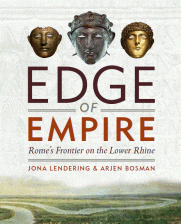Last week, I read Friedrich August Wolf’s Darstellung der Altertumswissenschaft. Written in 1807, after the collapse of the German states in the war against Napoleon, it shows its readers how they might regain a future: the only thing they have to do is study Antiquity and become almost as brilliant as the ancient Greeks.
I knew that this was the text that reduced Antiquity to Greece and Rome, and indeed, it’s not always nice to read that Asians and Africans had reached only the lower levels of civilization, and were not cultivated – after all, they had produced no literature. This is disingenuous: Wolf knew everything about Judaism. His more famous Prolegomena ad Homerum were innovative because Wolf understood the rabbinical commentaries and knew how to deal with the A-Scholia. Putting a blind eye to the great cultures of the ancient Near East was unkind.
I expected nothing when I started to read, but it proved to be a page turner. After his infelicitous remarks about the limits of Antiquity (indeed, neglect of the eastern part of the Mediterranean world), he explains what “Altertumswissenschaft” – the rejuvenated study of Antiquity – is about, and what it demands from its students. They need to study six disciplines and eighteen subsidiary disciplines; Wolf explains why and how, and does not make exaggerated claims. He is fully aware of the superiority of the sciences, and accepts it – the senseless claims, so often repeated by modern classicists, that science has made us more powerful but not more humane, are absent from the Darstellung.
In the end, the student has a sound, encyclopaedical knowledge of ancient society in all its aspects and would learn to think like the ancient Greeks. They had been the first to reach the upper levels of civilization, and had therefore been the only one people to be cultivated while retaining the nobility and originality of the preceding stages. It is all nonsense of course, but what did Wolf know about cuneiform? It is hard not to share his enthusiasm.
It is also hard not to like the teacher that Wolf must have been. The following words, exaggerated as it may sound, betray a man who knew his young students well, was able to show them something of very great value, and was happy when they were making progress:
Even the first attempts to explain an ancient text can have splendid results, and allow young people to look independently at the higher levels of achievement of the human mind.
Wolf’s Darstellung der Altertumswissenschaft is available at Google Books (here).


 Subscribe to feed
Subscribe to feed